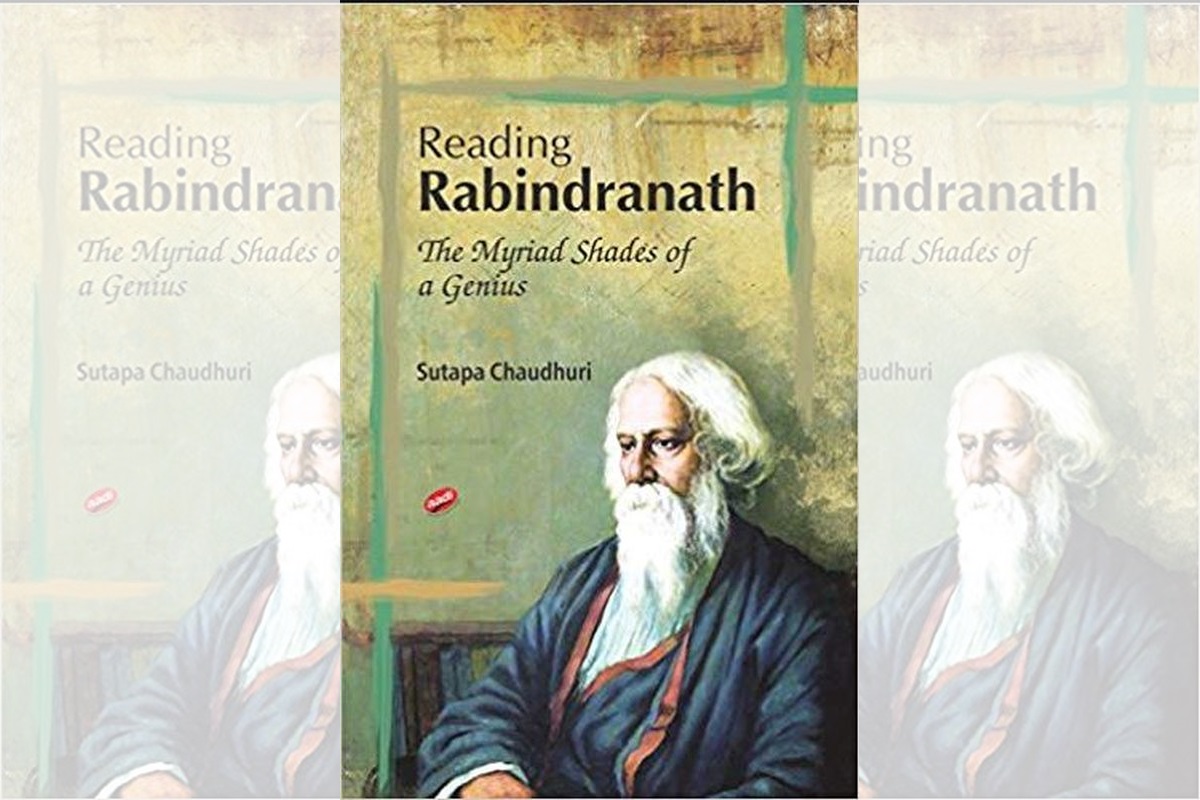A major voice in nineteenth century Bengal and the nationalist movement in India, Rabindranath Tagore is universal and is a major intellectual figure in world literature. Bengalis revere him and refer to him as Gurudev (a name conferred upon him by Mahatma Gandhi) and as Kobiguru (the guru of poets). A poet, novelist, dramatist, an essayist, a singer, composer, translator, painter, musician, Tagore was much ahead of his times.
Writing in a period that saw great social reform and the beginning of nationalism in India, Tagore voiced ideas of freedom, change, secularism, and spoke against religious bigotries and superstitions. Visualising an independent India that would be free of all this and be able to rise and shine in freedom someday, Tagore’s works reveal his ideas of social reform and activism.
Advertisement
The volume under review is a collection of critical essays that have as their focus Tagore’s plays, poems, dance dramas, short stories, novels and his essays. Given the vastness of Tagore’s corpus, it is a daunting task to bring together essays on his entire corpus and this edited volume sets out to bring together some of the myriad aspects of the great litterateur. The essays in this volume gauge the genius of Tagore through multidisciplinary approaches. The first essay in the volume, “All Beings in Own Self and Own Self in All Beings: Rabindranath Thakur and the Concept of Hospitality”, begins with Tagore’s idea of biswosahitya (world literature), a word which he chose over the term ‘comparative literature’.
The essay traces Tagore’s idea of a free India through a discussion of his poem Bharattirtha and novels Gora and Ghaire Baire. In an interesting essay titled “Self-Realisation of Women Through Binaries in Tagore’s Chokher Bali and Ghare Baire”, Srirupa Dhar examines the two novels using Derrida’s notion of “binaries,” the ideas of the marginal and the Other and discusses as to how this traditional hierarchy in the man/woman binary is at times subverted in Tagore’s novels. Dhar goes on to reveal as to how these binaries often work to shape the women characters in the novels and discusses Tagore’s feminist ideals relating them to those of Virginia Woolf’s.
Monali Chatterjee in her essay discusses Tagore’s essential humanity and his ideas of divinity with reference to his novel Choker Bali. The paper examines the women characters in the novel in the light of the nineteenth century, the period in which Tagore set his novel. The next essay, “Binodini: A Woman of Bengal Renaissance,” too, deals with the character of Binodini, the heroine of Chokher Bali, a widow whose situation is set in the light of debates on women’s education, widow remarriage and the abolition of Sati, important social reform movements of the time. Shruti Lahiri’s essay examines the character of Gora’s mother in Tagore’s eponymous novel who ignores notions of caste and creed and becomes a symbol of universal motherhood. The essay brings in a comparison between Anandamoyee Debi, Gora’s mother in the novel, Gorky’s The Mother and Mahaswheta Debi’s Hajar Churasir Maand examines the concept of the mother figures as depicted by Tagore in literature and by Sarada Devi in real life. Purnima Mukherjee’s essay is a comparative analysis of three short stories ~ Tagore’s “Gupta-Dhon,” Edgar Allan Poe’s “The Gold Bug,” and Arthur Conan Doyle’s “The Musgrave Ritual”. The three stories discuss man’s quest for power while being tales where detection features pre-eminently. “Reinterpreting Postmaster, Ginni, Kabuliwala, Chuti as Children’s Literature,” focuses on the four short stories revealing Tagore’s deep concerns with social issues. Tagore was the first writer of short stories in Bengal and these four stories form part of his short story collection, Galpa Guccho. Sutapa Chaudhuri’s essay, “The First Awakenings of Self: Female Desire and Power in the Dance Dramas of Rabindranath Tagore,” argues that female desire has been a basic theme of Tagore’s writings. An often contested claim though, she contends that this is linked to notions of identity and liberty. She discusses women in the plays, in particular the dance dramas in which Tagore brings the taboo subject of female desire and relates it to the idea of the New Woman who would be part of the new nation and social order. Chaudhuri contends that the dance dramas are important cultural texts that bring to fore important ideas of society and the self. The last essain the volume, the shortest, is a study of the use of the river as a motif in Tagore’s work and is a bit sketchy in developing the argument.
Reading Rabindranath: The Myriad Shades of a Genius thus offers various interesting and critical readings of the work of the writer. It presents a comprehensive analysis of some of his work, analysing them in the light of modern theories, in the light of the times they were composed, and in the light of the major social issues that Tagore voiced so clearly and boldly in them. As the subtitle attests, Tagore was, indeed a genius, whose work encompasses various genres, themes, concerns and ages.
A writer for all times, who voiced universal concerns, it is difficult to fathom his greatness in a single volume. The essays in the volume add new perspectives to the area of Tagore studies, opening up interesting ways of looking at the work of the great writer. One wishes the price of the book could have been a bit less given the slim size of the volume.
(The reviewer is Associate Professor, Department of English, Brahmananda Keshab Chandra College, Kolkata)











